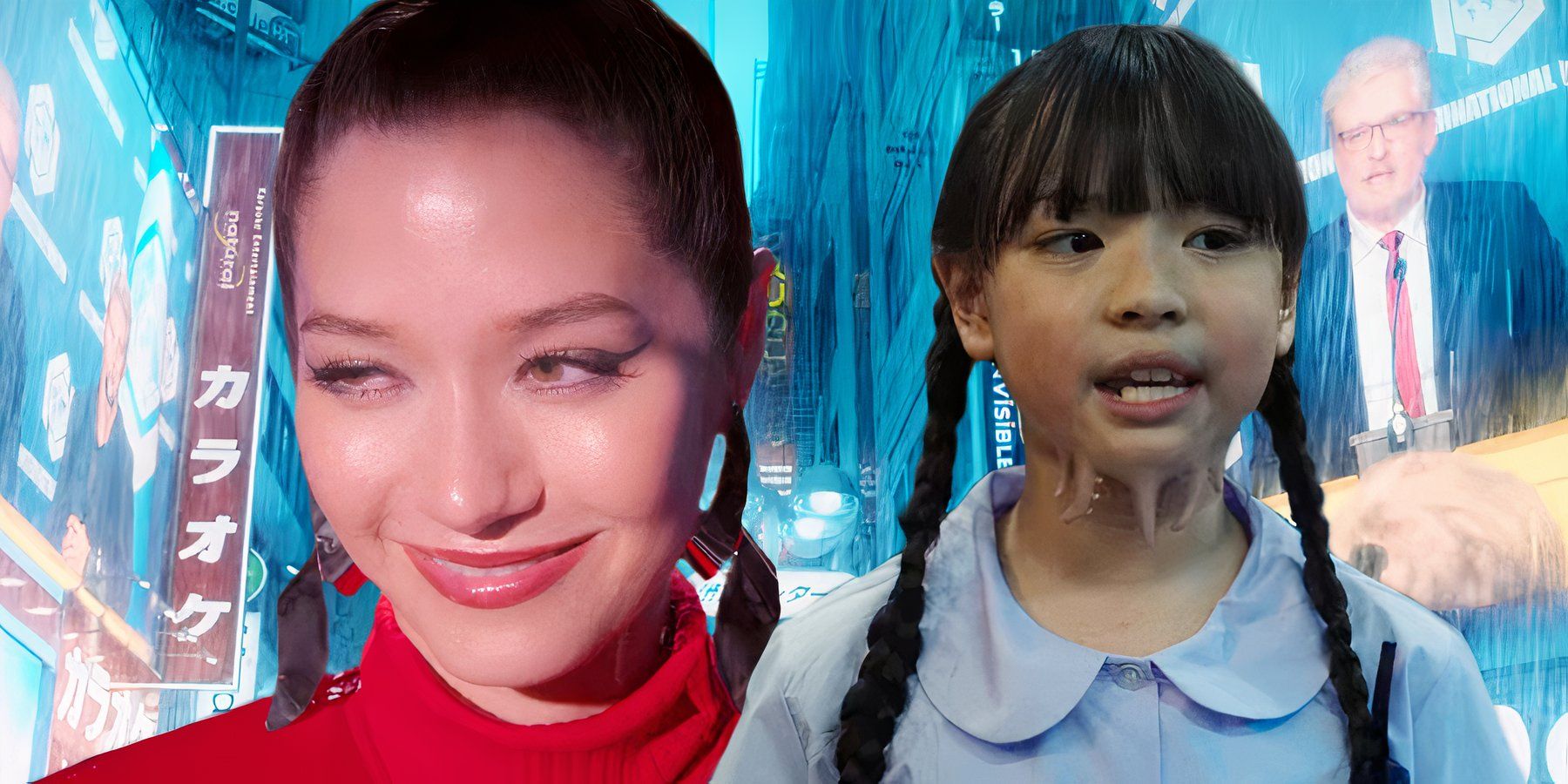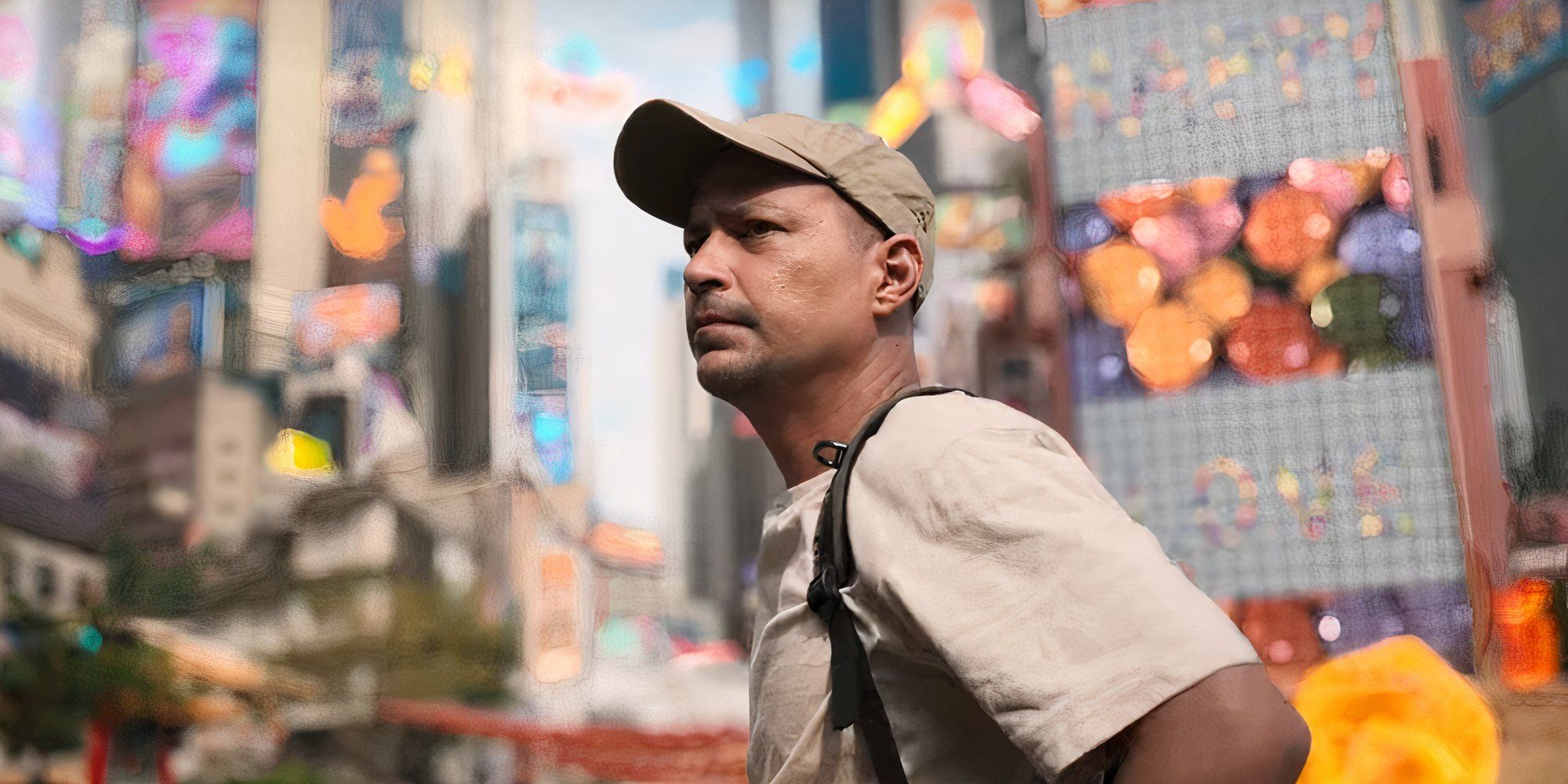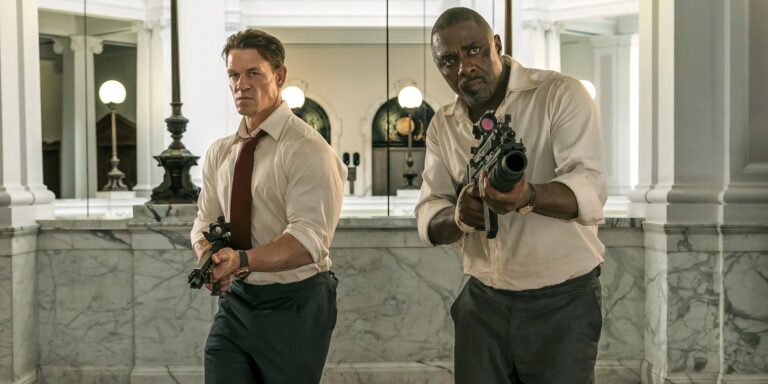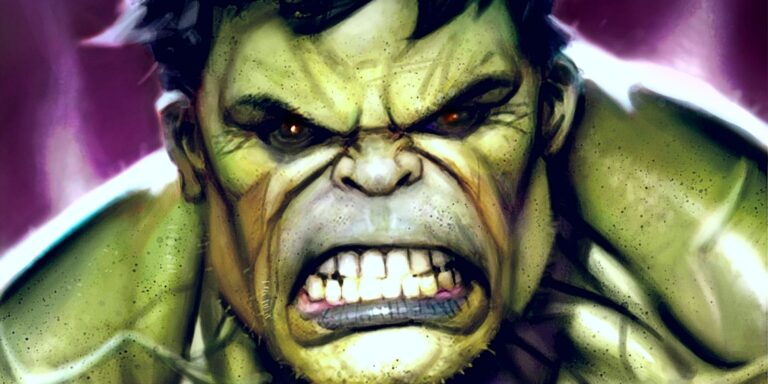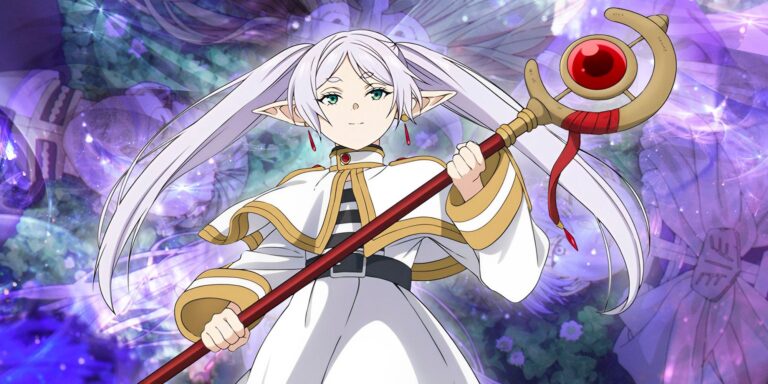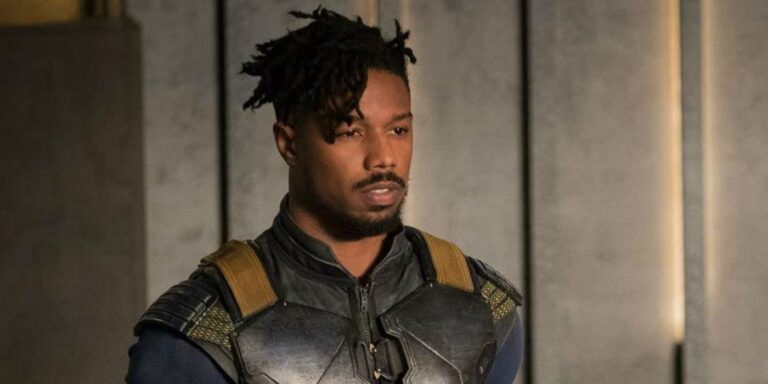Warning! This article contains spoilers for Tomorrow and I.
This article contains discussion of sexual assault.
Tomorrow and I subverts expectations with each of its stories, not only offering a series of twists that flip the narratives around but also ending the characters’ journey with no definite explanation of their actions, leaving an uncertain feeling about where they will go or what it means. Pulling from one of Netflix’s best TV shows, the Thai horror anthology investigates the darkest version of four growing technologies that stem from a pressing issue in society. How each episode relates to the rest isn’t apparent at first. However, the Tomorrow and I characters’ motivations and tragic endings reveal the series’ overarching message and themes.
Noon’s decision to stay in space even after getting the body she/he always wanted; Jess’ drastic transformation from a radical sex entrepreneur to a worker who complies with oppressing gender norms; Monk Anek’s loss of faith; ULTRA’s troubling materialization of religion; to the end of the world in “Octopus Girl,” Tomorrow and I’s doomed protagonists reveal the limits of technology to fix and cure systemic issues in human society. Surprisingly, the only main characters who die are the two young girls, speaking for the last episode’s bigger purpose and its references to the other stories in the show, who has joined a long list of 2020s anthology TV shows.
Nont Clones Noon
Nont Changes His Mind At Black Sheep’s Ending
Most of “Black Sheep” asks sci-fi’s common question, which pertains to whether someone should bring back the dead if they have the means to do it. Up until the episode’s biggest twist, the afflicted Nont is determined to clone his wife even despite her family’s refusal, going as far as stealing her head to carry out the procedure. When his scientist friend, Vee, encounters a problem during the extraction and categorization of Noon’s memories, the narrative cuts to a defeated Nont being caught by the police. Three years later, Nont is released from prison and is met by a strange character who shares his name.
The narrative then circles back to explain the events, revealing Vee discovered Noon was secretly transgender. He married Nont because he felt he could be himself, even if presenting as female. After Vee tells this to Nont, he is hurt but ultimately decides to clone Noon in the way he would have wanted to be, changing his chromosomes, so his body is now male. When Nont gets out of prison, Noon, now identifying as “Nont,” meets him, and they have a touching reunion where they honor their love and celebrate Noon/Nont feeling at home in his body.
Why Nont Goes To Space In Black Sheep’s Ending
Noon/Nont Is Forced To Leave Thailand After His Transition
Despite Nont and Noon’s happy reunion at the end of “Black Sheep,” the characters don’t end up together. Nont discloses having returned to his work on organ printing, and that his company asked him to carry out his research on the moon as part of a colonization program. Noon/Nont doesn’t get a choice to stay, as ISA makes his relocation a condition for them to take care of his new identity and offer him work. In other words, his body transition comes at the cost of his place in Thailand.

Related
The Best Korean Dramas On Netflix Right Now
Good news for K-Drama fans! Netflix is aboard the Korean pop culture bus. Here are the best K-Dramas you can watch on Netflix right now.
As Nont thinks about everything Nont is accomplishing but can’t return, he says “there’s no place for black sheep in this world.” The title of the episode reveals that, while Noon might have changed, society didn’t. Tomorrow and I carries the message that, even if there are technologies that can help transgender individuals live authentically, these don’t represent a happy ending against systemic and societal transphobia that denies “black sheep” from having a space that allows them to thrive, be loved, understood, and accepted — but rather casts them to the side or forces them into exile.
The Real Meaning Of Paradistopia’s Ending & Why Jess Really Wanted To Open Paradise X
Jess Wanted to Save Sex Workers From Thailand’s Clandestine Sex Industry
“Paradistopia” crescendoes to Paradise X’s disturbing launch, which undermines Jess’ journey. After following Paradise X go from a sex-positive effort to a corrupting technology, it’s not clear whether Jess failed or accomplished exactly what she wanted. The episode’s twist, however, suggests Jess wanted humans to direct their worst and darkest sexual vices to her sex robots to protect real women and children. The revelation that her mother’s clandestine work practice led to Jess being sexually exploited explains why she always saw Paradise X as an empowering initiative and ignored its potential to incite sexual and gender violence.
Jess’ robot maid, which complies with the “
nation’s values
,” shows her defeat against an industry benefiting from gender violence.
The entrepreneur wanted to protect sex workers from a disempowering industry in Thailand by employing them as trainers and offering them recognition and benefits, while she made sure people focused their worst impulses on robots. However, Jess’ efforts seem to escalate people’s sexual depravity, resulting in her prosecution and the nation’s illegalization of sex toys. At the core of “Paradistopia,” there is a critique of the country’s failure to acknowledge its pressing sexual violence issue while enabling a clandestine sex industry. Jess’ robot maid, which complies with the “nation’s values,” shows her defeat against an industry benefiting from gender violence.
How iBuddha Is Different from ULTRA
ULTRA Rejects The Human Factor, While iBuddha Prioritizes It
“Digital Buddha” offers a complex exploration of the evolution of religion amidst a growing digital industry. To understand the difference between ULTRA and iBuddha and one’s victory over the other, it’s important to look at Mr. Neo’s motivations, which serve to explain society’s loss of faith. With ULTRA, Neo wanted two things: to prevent monks’ abuse of religion to exploit well-intentioned people, and to ensure faith could translate into economic gain. Because of this, he created ULTRA’s infamous Merit Points System, which rewards good deeds, and trained ULTRA’s AI “ with zero human input ,” eliminating monks altogether.
iBuddha’s human element is better than ULTRA, as Anek’s service clones spiritual mentors’ brain waves to create assistants that guide people in their religious practice. Anek’s points system, Jitta, rewards people for their constant religious practice and accumulated wisdom, not offering money but the possibility of a free subscription to the device. iBuddha’s defining characteristics ensure that religious practice is free and human, and prevents people from using good deeds to make a shallow profit. The fact that Monk Abbot’s past of sexual abuse informed iBuddha’s human learning technology, provokes Anek to realize humans will always be prone to corruption.
Why Did Anek Stop Being A Monk In Digital Buddha’s Ending
Anek’s Loss Of Faith Reveals His Defeat Against A Corrupt Capitalist System
At the end of “Digital Buddha,” devoted Anek ends up resigning as a Monk after witnessing iBuddha’s fall from grace. He takes off his robe and turns off iBuddy, signaling his rejection of religion and technology. Though the narrative leaves his reasoning and plans very ambiguous, Anek likely rejects technology and faith as he realizes they cannot fix or cure a capitalist society. Like Jess, Tomorrow and I presents another character that tries to tackle an issue, this time loss of faith, with a technology that humans corrupt, only to realize the real issue is a systemic failure.
Anek and Neo’s past as victims of life-destroying capitalism confirms the episode’s real issue isn’t people exploiting technology/religion, but the system that breaks humans, so they either lose everything to it or learn to abuse it to survive. Anek’s development tragically shows how people lose faith in a world that enables and rewards corruption. His final defeat resembles Jess’, as both characters give up their noble and fierce efforts to produce a positive change and end up working for a system that oppresses them.
Why Do Mook and Pang Die In Octopus Girl’s Ending
Mook And Pang Show The Sad Reality Newer Generations Face
Tomorrow and I’s most emotionally devastating ending features the deaths of Mook and Pang, two little girls who saved their community from disease and flood. Presenting a Thailand overcome by incessant rain, “Octopus Girl” sees children lose hope against a government that ignores its poor community’s life-threatening struggles and a world so damaged there is no more sunshine to play in. As the girl and her loyal friend decide to take matters into their own hands, they manage to bring public attention to their district’s vulnerable state, ensuring government funding and vaccines for all.
The dialogue accompanies the images of the deaths of
Tomorrow and I
’s only child protagonists, defying the saying that the newer generations have to fix our world and showing the fate that children will face if there’s no action against climate change.
The episode’s shocking twist undermines its heroines’ success as a temporary solution, by proving climate change is much bigger than a vaccine that takes pride in advancing human evolution. As the return of the sun marks humanity’s death sentence, a voice-over repeats Pang’s initial lament, “Why did they do so much damage to the world?” The dialogue accompanies the images of the deaths of Tomorrow and I’s only child protagonists, defying the saying that the newer generations have to fix our world and showing the fate that children will face if there’s no action against climate change.
Why Tomorrow And I Wraps Its Stories With Pang and Mook’s Story
Vulnerable Children Are At The Center Of Tomorrow And I
Pang and Mook’s failed efforts echo the intentions of Nont, Jess, and Anek to fix a systemic issue with technology. The four stories from Tomorrow and I present an individual’s defeat against a societal issue that isn’t acknowledged. Additionally, all episodes demonstrate these large social problems attack a child’s home and innocence. As a child, Noon was rejected by his parents when he came out as transgender; Jess was sexually abused and lost her mother to clandestine sex work; Neo lost his parents and house to the exploitation of their faith; and Pang and Mook lost their future to global warming.
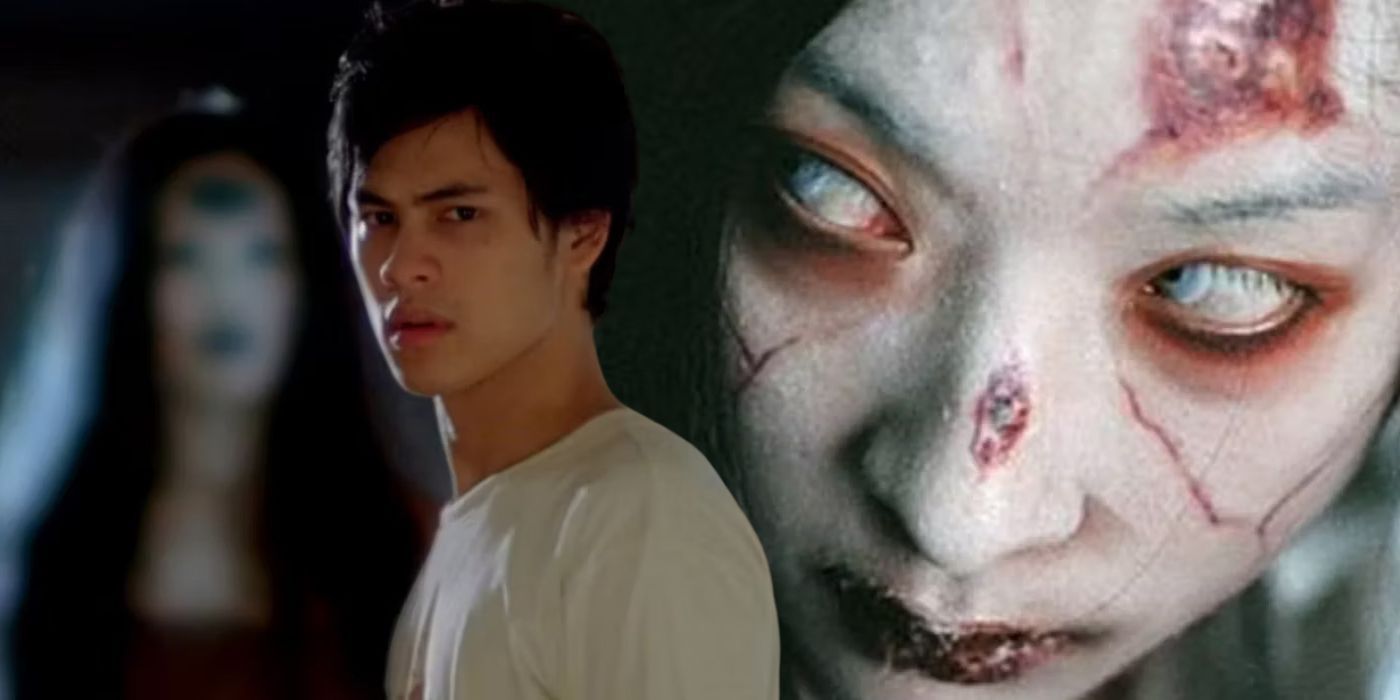
Related
25 Best Thai Horror Movies
Although some Thai horror hits have had their own American remakes, there are many incredible horror movies from Thailand that are under-appreciated.
“Octopus Girl”’s specific focus allows to follow in the footsteps of some of the best TV on climate change, concluding the anthology with the most pressing issue. The show brilliantly takes the blame from its corrupted people and sheds light on the links that sexual violence, transphobia, abuses of religion, and climate change have with capitalism — as the system actively benefits from and encourages oppression and exploitation. The show’s title invites viewers to negotiate how they envision their tomorrow, and the episodes’ focus on ruined childhoods questions whether they don’t want children to enjoy life’s pleasures authentically and free from abuse.
What Does The Religious Imagery In Tomorrow and I Mean
Tomorrow And I Speaks On Religion’s Role In A Corrupted And Damaged World
Every episode in Tomorrow and I shows some form of a religious figure or symbolic presence, whose purpose is not always straightforward as in “Digital Buddha.” While Jess’ divine-like moments give her a saint/martyr quality and offer a rich contrast with Paradise X’s unsettling promotion of sexual perversion, her visions of the Virgin Mary work to explore Tomorrow and I‘s bleak sci-fi themes. Like technology, religion fails to save the characters and fix the corrupted society. Notably, young Jess’ prayers to the Virgin Mary didn’t save her or her mom from abuse.
Tomorrow and I’s religious imagery urges the recognition that praying won’t fix society’s systemic issues, but sometimes it works to inform them. Likewise, at several points, “Octopus Girl” intersects its story with the image of a Buddhist trinket that is slowly ending up underwater. Although the trinket materializes the approaching threat of the water rising, it also serves to demonstrate that religion cannot fight against a natural disaster. Although not explicitly, religious values are revealed in Tomorrow and I’s leading issues, as wishful thinking on human evolution, gender norms, and transphobia all stem from religious thought.
The Real Meaning Of Tomorrow And I’s Tragic Endings
The Characters’ Failed Temporary Solutions Urge A Fight Against The System
The Tomorrow and I tragic but great sci-fi endings work to communicate that individuals themselves cannot dismantle an overarching system that works against their dignity. The Thai anthology series defies the idea that people are to blame for sexual, gendered, and class oppression, but rather highlights the driving forces that feed these issues: mainly, capitalism, but also religion. As its protagonists blindly focus their desperate efforts on offering a temporary technological solution, Tomorrow and I reveals real change needs to target the corrupting system, not the people.
Transphobia, sexual violence, capitalism, the exploitation of people’s faith, and transhuman dreams of evolution and survival, are presented as the poisoned seeds in society, with roots deep in culture, Buddhism, and the ruling systems of society. Tomorrow and I’s rich and complex exploration of the intersections between society’s pressing issues, and their terrible consequences on childhoods, makes it a valuable storytelling effort that affects the audience into desiring a tomorrow where these brave characters end up victorious. If anything, the show forces people to acknowledge the real problem and urges them against getting caught in magical ideas of salvation.
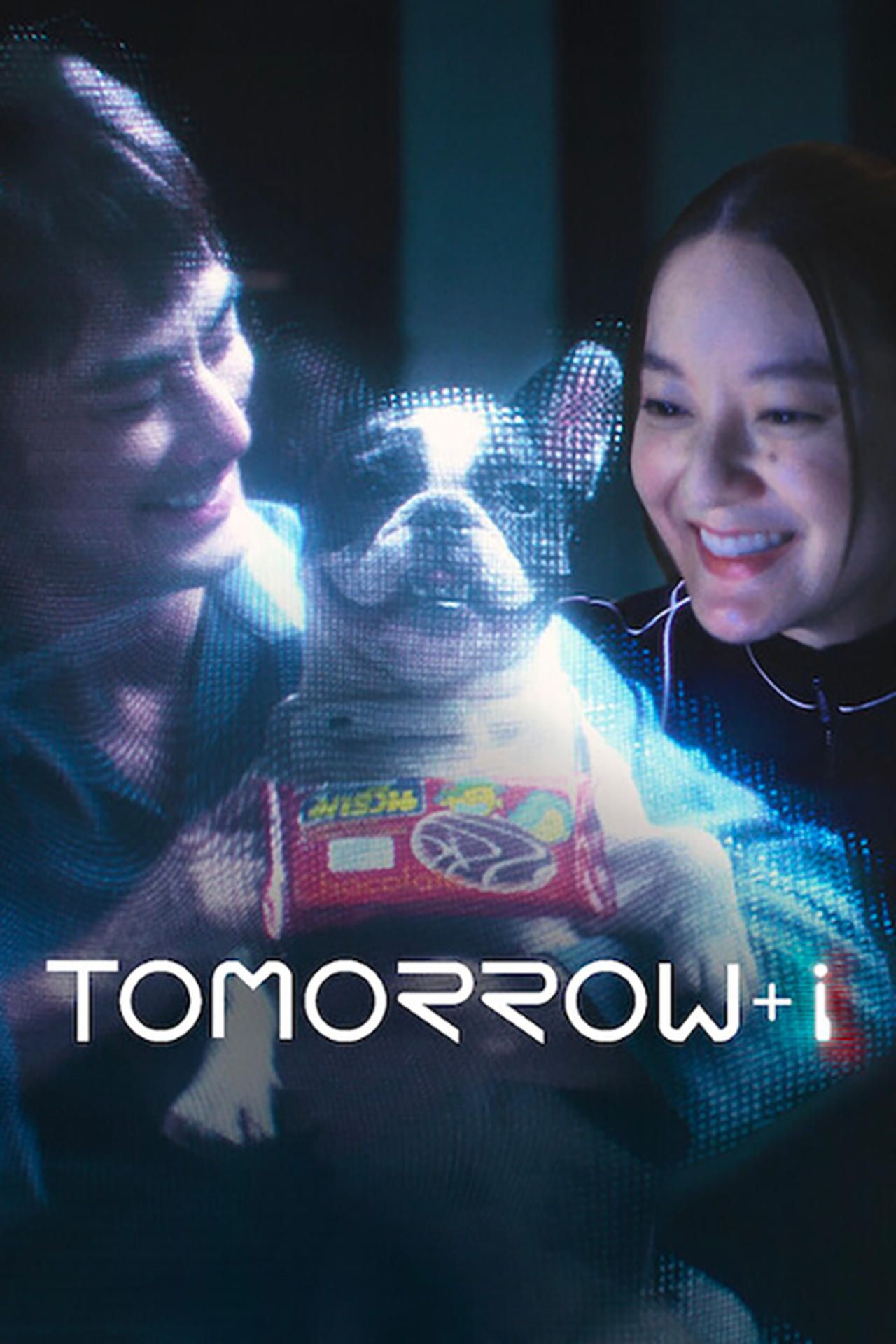
Tomorrow and I
Set in a dystopian future Thailand, Tomorrow and I examines the tension between modern technology and traditional customs. The series reveals how advances in technology challenge cultural norms, uncovering profound societal shifts and conflicts as these two forces collide.
- Cast
- Bhumibhat Thavornsiri , Pongsatorn Jongwilas , Chananticha Chaipa , Sawanee Utoomma , Pakorn Chatborirak , Waruntorn Paonil , Treechada Petcharat
- Release Date
- December 4, 2024
- Seasons
- 1
- Main Genre
- Sci-Fi
- Creator(s)
- Jirawat Watthanakiatpanya , Pat Patarunataporn , Paween Purijitpanya
